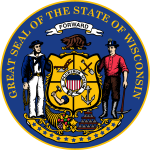
The Territory of Wisconsin was an organized and incorporated territory of the United States that existed from July 3, 1836, until May 29, 1848, when an eastern portion of the territory was admitted to the Union as the State of Wisconsin. Belmont was initially chosen as the capital of the territory. In 1837, the territorial legislature met in Burlington, just north of the Skunk River on the Mississippi, which became part of the Iowa Territory in 1838. In that year, 1838, the territorial capital of Wisconsin was moved to Madison.

Nelson Webster Dewey was an American pioneer, lawyer, and politician. He was the first Governor of Wisconsin.
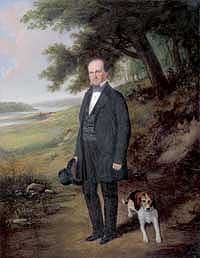
Morgan Lewis Martin was a delegate to the United States House of Representatives from Wisconsin Territory during the 29th United States Congress (1845–1847). He also served as a member of the Wisconsin State Senate and Wisconsin State Assembly, and served as a county judge in Brown County, Wisconsin.
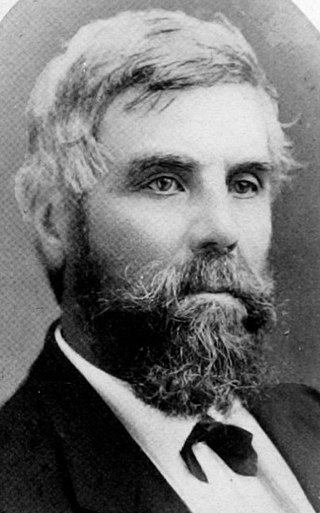
John Hubbard Tweedy was a delegate to the United States Congress from Wisconsin Territory from March 1847 to May 1848 being elected from the Whig Party. He was also the Whig Party nominee in first Wisconsin gubernatorial election, where he lost to Nelson Dewey.

Hiram Barber was an American pioneer, politician, and businessman in Dodge County, Wisconsin.
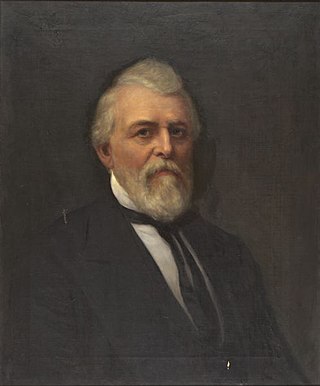
Moses McCure Strong was an American lawyer, politician, businessman, and Wisconsin pioneer. He was one of the framers of the Constitution of Wisconsin, a member of the territorial legislature, and United States Attorney for the Wisconsin Territory under President Martin Van Buren. After Wisconsin achieved statehood, he was Speaker of the Wisconsin State Assembly during the 3rd Wisconsin Legislature.

William Rudolph Smith was an American lawyer, politician, pioneer, and historian from Pennsylvania who served as the 5th Attorney General of Wisconsin, the first President of the Wisconsin Historical Society, and the first Adjutant General of Wisconsin.
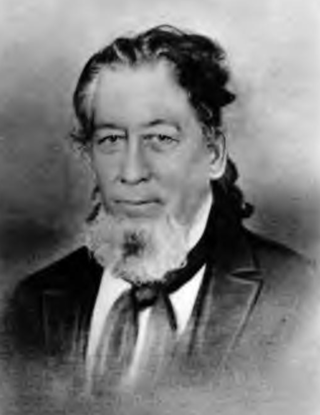
Alexander Botkin was an American lawyer, politician, and pioneer settler of Dane County, Wisconsin. He served one term each as a member of the Wisconsin Senate and Wisconsin State Assembly.

Edward Vernon Whiton was an American lawyer, jurist, and Wisconsin pioneer. He was the first elected Chief Justice of the Wisconsin Supreme Court, serving on the Supreme Court from its creating in 1848 until his death in 1859. He had previously served in the Wisconsin Territory legislature and was a framer of Wisconsin's constitution.
Ninian Edward Whiteside was an American Democratic politician, attorney, and pioneer who served as the 1st Speaker of the Wisconsin State Assembly and 9th Speaker of the California State Assembly. Whiteside is believed to be the only person to serve as the Speaker of the House in two separate state legislatures in the United States.
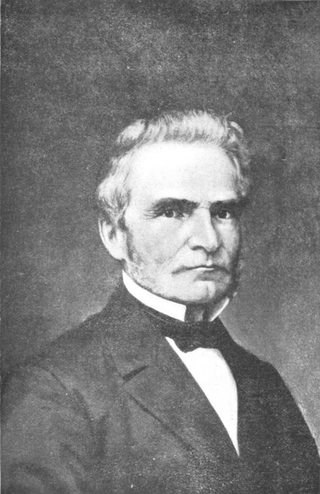
Charles Minton Baker was an American lawyer and politician. He served several years on the Council of the Legislative Assembly of the Wisconsin Territory and was a delegate to Wisconsin's first constitutional convention in 1846. After Wisconsin became a state, he briefly served as a Wisconsin circuit court judge. His son, Robert Hall Baker, became a prominent businessman and Republican politician in Racine, Wisconsin.
David Agry was an American lawyer, jurist, and legislator. He served as a member of the Wisconsin Territorial House of Representatives and the Wisconsin State Assembly.
Daniel Morgan Parkinson was a farmer, hotelier, state militia officer, and holder of various offices in frontier Wisconsin, including in the legislature.
Benjamin Hunkins was an American politician who had a role in shaping the Wisconsin constitution.
Harvey Griswold Turner was an American lawyer, politician, and judge. He served two years in the Wisconsin State Senate, representing Washington County, and five years as county judge of Ozaukee County. He was also the youngest delegate to Wisconsin's 2nd constitutional convention, which produced the Constitution of Wisconsin in the Winter of 1847–1848.

The 1849 Wisconsin gubernatorial election was held on November 6, 1849. Democrat Nelson Dewey won the election with 52% of the vote, winning his second term as Governor of Wisconsin. Dewey defeated Whig Party candidate Alexander L. Collins and Free Soil Party candidate Warren Chase.

The 1853 Wisconsin gubernatorial election was held on November 4, 1853. Democratic candidate William A. Barstow won the election with 55% of the vote, winning his first term as Governor of Wisconsin. Barstow defeated Free Soil Party candidate Edward D. Holton and Whig candidate Henry S. Baird. This would be the last Wisconsin gubernatorial election in which there was a Whig candidate on the ballot.
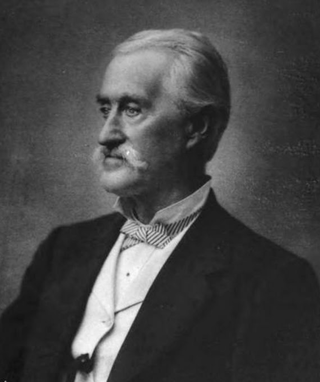
Alexander Lynn Collins was an American lawyer, judge, and politician. He was an important leader of the Whig Party in the early years of Wisconsin, serving as party chairman, nominee for United States Congress, for United States Senate, and for Governor of Wisconsin. He also served as a Wisconsin Circuit Court Judge and a member of the University of Wisconsin Board of Regents. In historical documents, his middle name is sometimes spelled "Linn" and he is sometimes referred to as "A. L. Collins."
The Fourth Legislative Assembly of the Wisconsin Territory convened from December 5, 1842, to April 17, 1843, from December 4, 1843, to January 31, 1844, from January 6, 1845, to February 24, 1845, and from January 5, 1846, to February 3, 1846, in regular session.
Thomas Shanley was a pioneer settler from Lancaster, Wisconsin who served as a member of the 1st Wisconsin Territorial Legislature.
